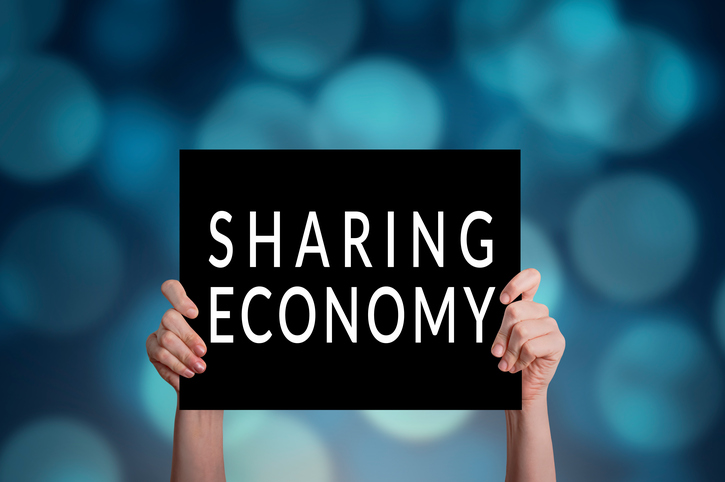 Today’s guest post is by Elaine Gluckian, a content developer for networking app provider Swapcard. She has a strong interest in technology and innovation law.
Today’s guest post is by Elaine Gluckian, a content developer for networking app provider Swapcard. She has a strong interest in technology and innovation law.
The companies that make up the “sharing" or alternative economy— Airbnb, Uber, etc.—can be great tools for event planners who are seeking flexible, low-cost solutions to common problems in event organizing. Not only that, but they can make your event experience more interesting and enjoyable for attendees.
However, the events industry been slower than the general public to work with these services, which are built on borrowing or renting the services or assets of others, usually through an online platform. But it’s time to get on board—especially if your event targets a millennial audience.
Here are four ways to get started.

1. Use It for a Backup Plan
There are few situations more stressful for event planners than realizing that they don’t have enough hotel rooms or taxis for attendees. Because alternative economy solutions generally require little to no pre-booking, they are a great way to get out of this kind of jam.
2. Take Care of Tasks and Odd Jobs
Running an event in an unfamiliar city can be stressful and confusing. The gig economy—another facet of the alternative economy—can be a great way to “rent” people to do small jobs around your event so you and your core team don’t get overwhelmed with minutiae. Taskrabbit, Stootie, and the more recent contender Coople can help you find people to pick up dry cleaning, hand out flyers, or perform other odd jobs.
Coople, a staffing app, will be one to watch for event planners because it is designed to help you find people who offer work at an hourly rate. Stewarding, security, and food service jobs are all available on the platform.
Platforms like Upwork and Fiverr can also be great places to find copywriters, translators, and graphic designers. Upwork also will hold funds in escrow until a project is successfully completed, so it's a safe bet in that regard. Freesist even claims to find freelancers who will literally work for free, though that’s a bit ethically dubious.
3. Vary Your Price Points
If you have attendees with varying travel budgets, being able to provide a discount code can be a great way to push those on the fence to attend.
An Airbnb accommodation often can be less expensive than a hotel, and ridesharing can be much cheaper than getting taxis to and from a venue. By incorporating more cost-effective alternative economy options, you can give your attendees the same experience at a lower cost.
4. Create more authentic experiences
People often complain that they didn’t get to see the city they traveled to in order to attend an event. They spend the time in an anonymous hotel and rarely leave the conference center.
The alternative economy is at its root a people industry. Attendees who use Airbnb get to meet someone from the city and see how they live. Airbnb now has an “experience host” program attendees can use in their spare time to get a brief but well-rounded picture of your event location.
Controversy around the Sharing Economy
The alternative economy is far from a universally welcomed innovation. Governments the world over are struggling to deal with what the it might mean for the future of not only employment, but also for wider social inequality. Alternative economy start-ups claim to disrupt inefficient markets, but making these markets more efficient can come at the expense of the people working within them.
While the companies promoting the alternative economy market an image of people making a few extra dollars in their spare time, in reality the majority find themselves stringing together several low-paid, unstable gigs, and many are below the poverty line.
With no job security or other rights, many critics say that the alternative economy is just a further extension of free market principles into our personal lives. Proponents argue that the increased flexibility and freedom offered by the sharing economy compensate for this, and in fact is giving us a preview of what the future of work for all of us will look like.
Uber in particular has experienced a huge number of legal challenges, most recently a U.K. judgment that found that their drivers were not self-employed and were entitled to the minimum wage.
Many cities are also experiencing housing crises that are in no small part fuelled by Airbnb. Several major cities including Berlin, London and Amsterdam have put limits on the number of days an apartment can be rented on Airbnb.
The aim is to put a stop to professional Airbnb landlords who rent several properties full time via the platform, removing more and more housing stock from the market.
While the legal and ethical implications of these services have yet to play out fully, it seems as if the sharing economy will only go from strength to strength in the near future. Event planning should be a part of that.





